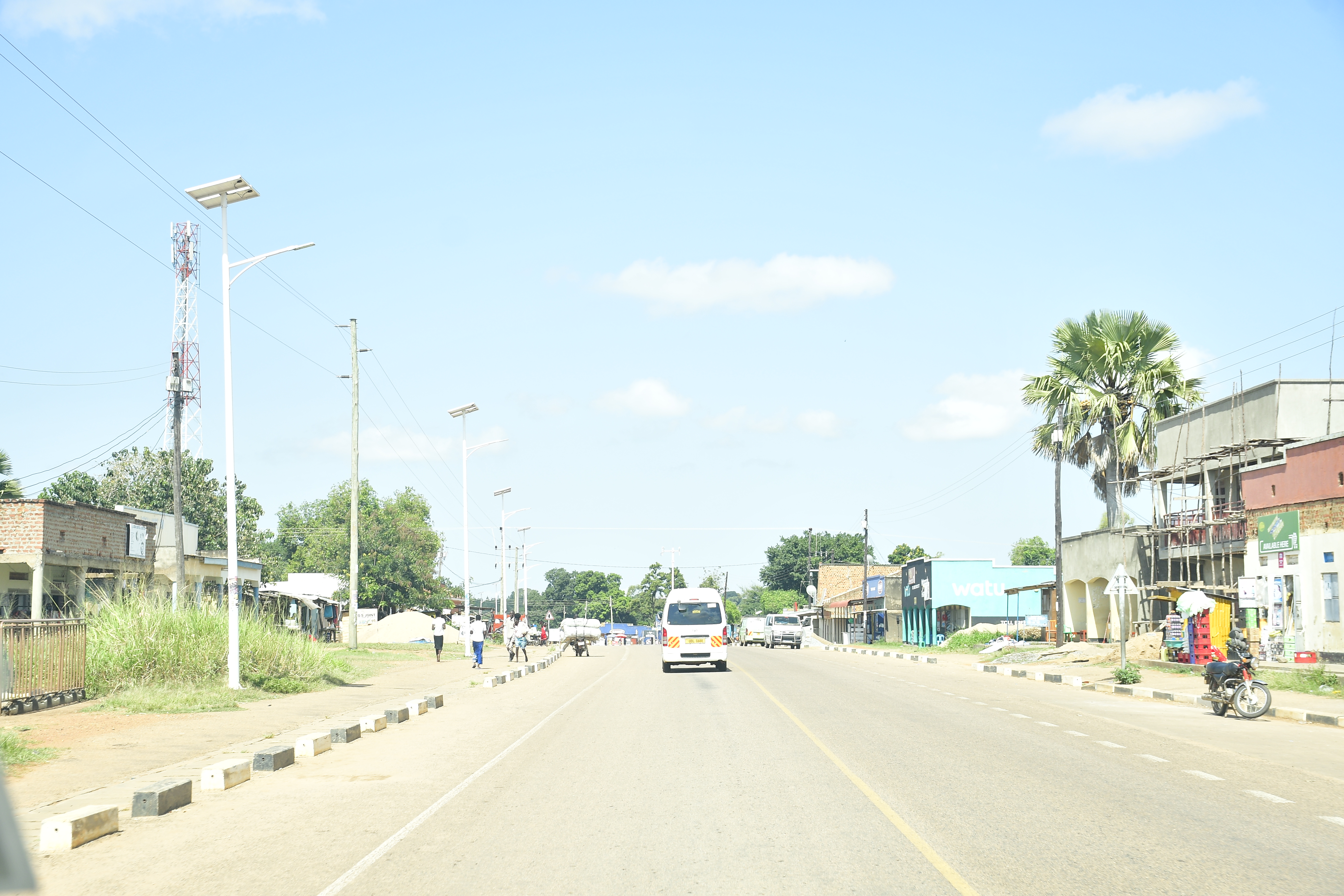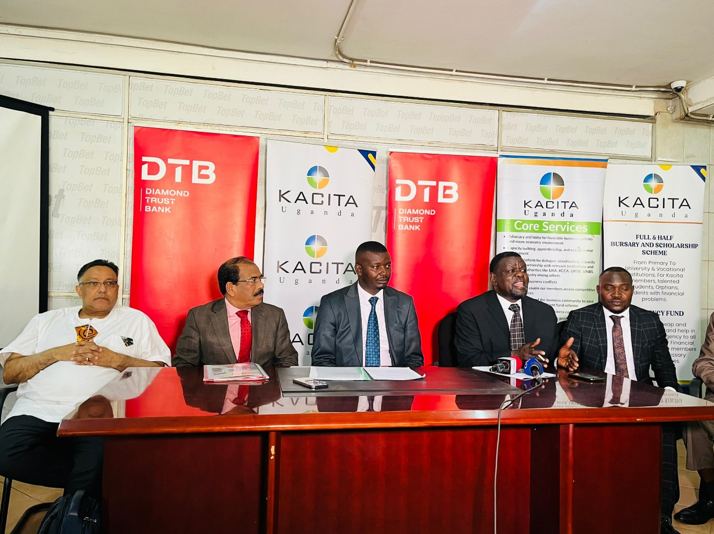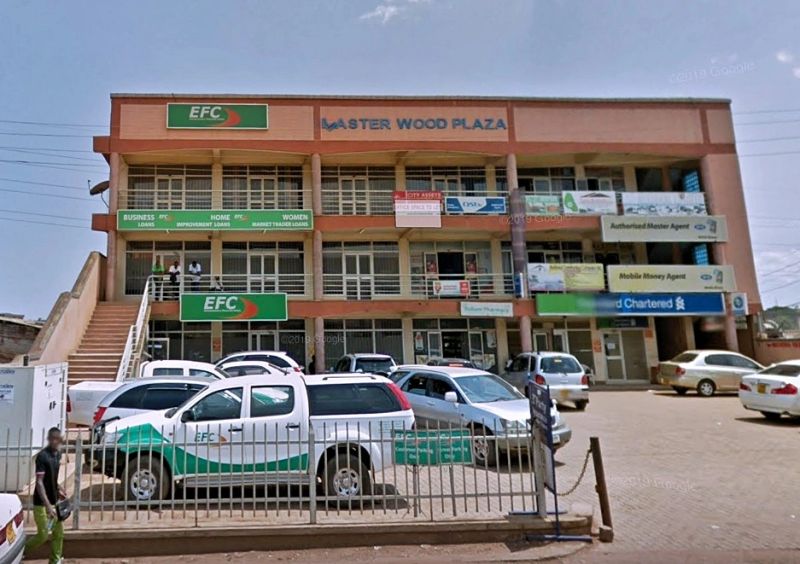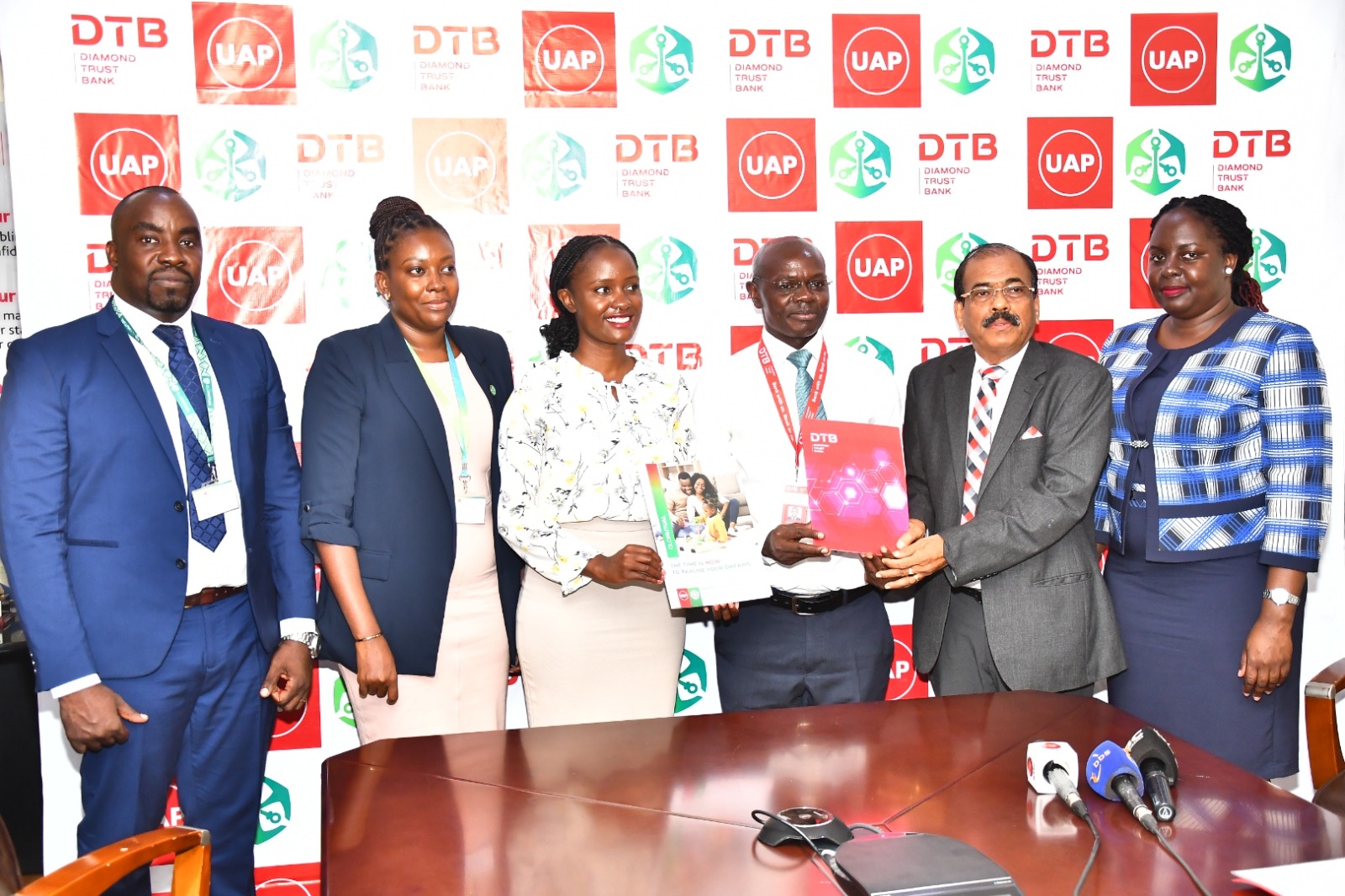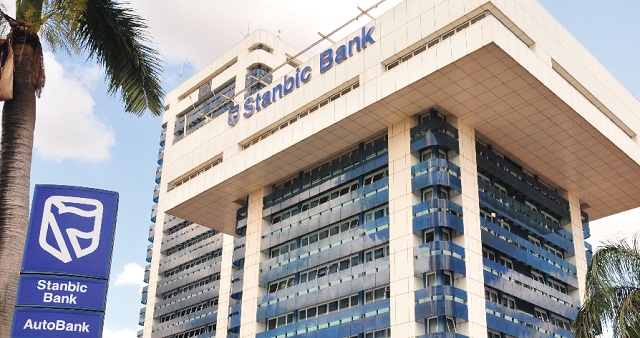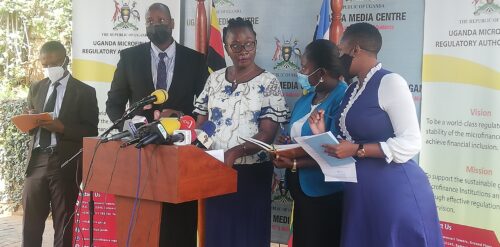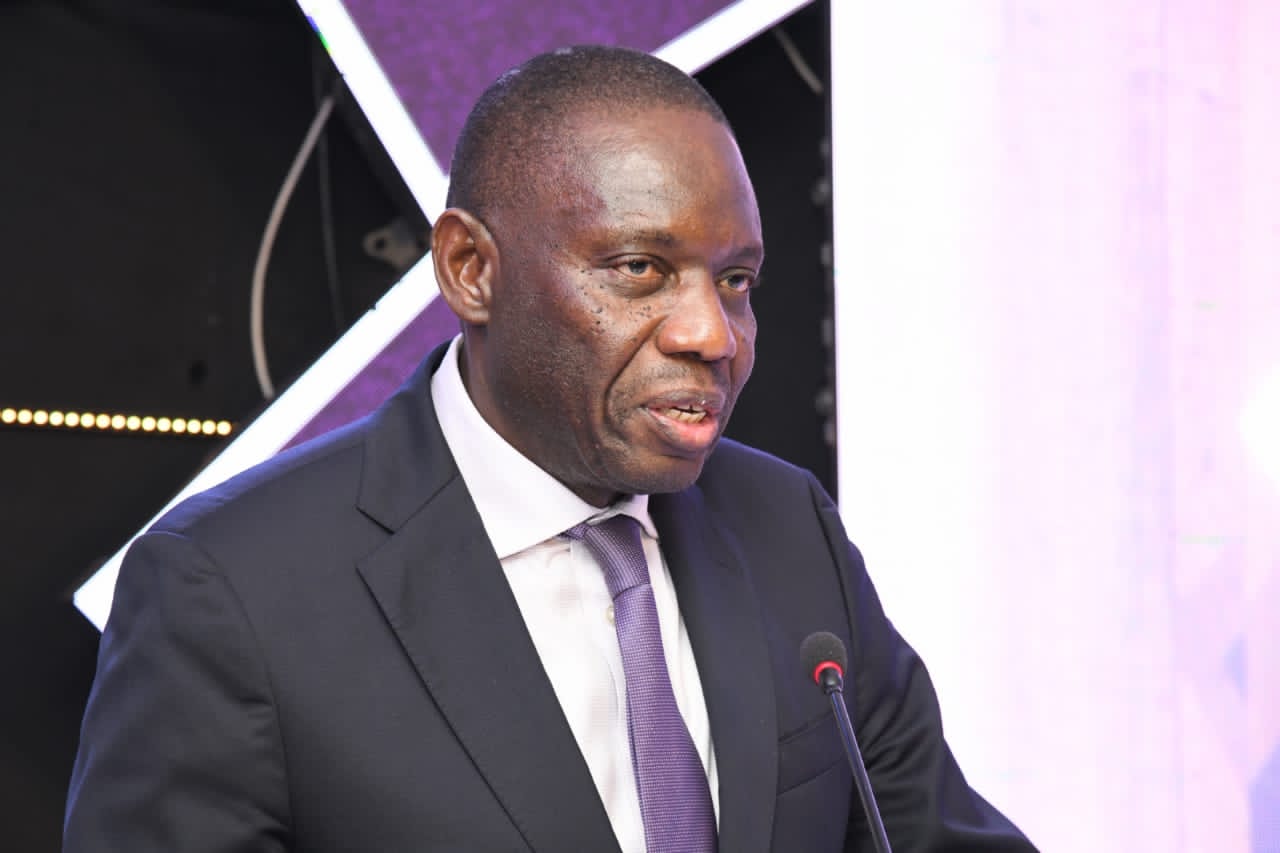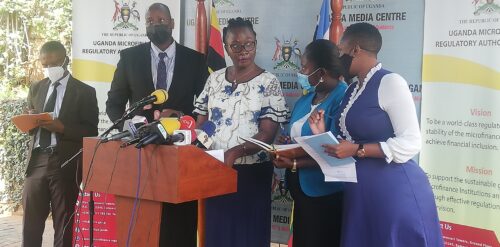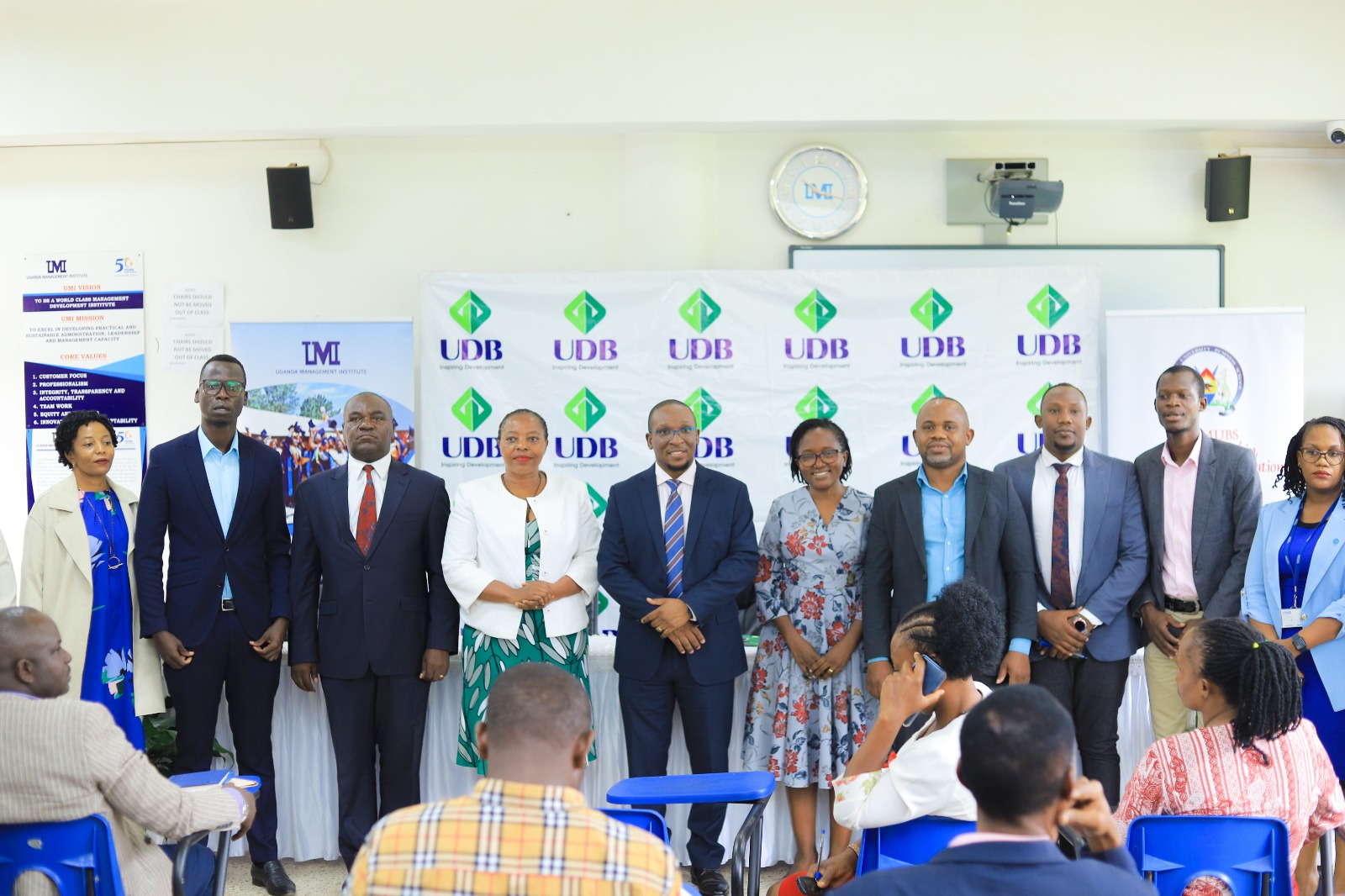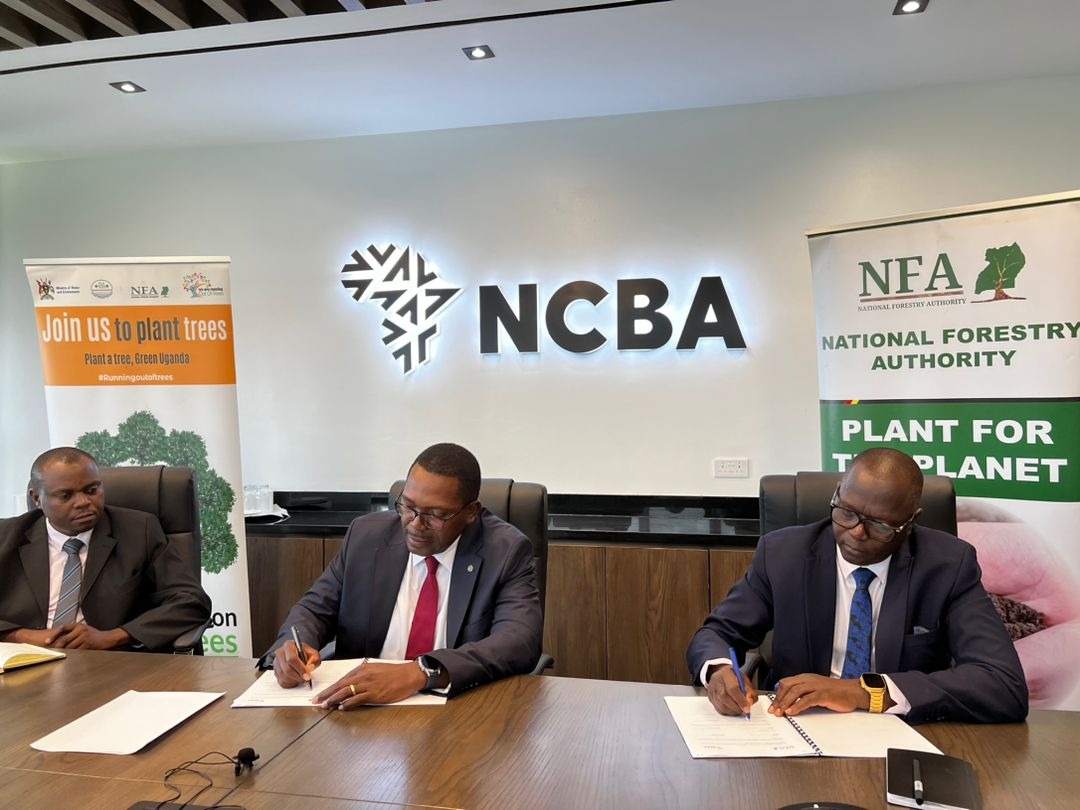NCBA Bank commits millions to central forests restoration

CONSERVATION: Mark Muyobo, the NCBA Bank Uganda CEO, launches the restoration of the severely degraded Jubiya Forest Reserve in Masaka District yesterday.
NCBA Bank Uganda, in collaboration with the National Forestry Authority (NFA), has embarked on the restoration of degraded forests across the country.
The programme kicked off yesterday when NCBA Bank staff traveled to Masaka District to kick-start the rehabilitation of the degraded sections of the Jubiya Forest Reserve along the shores of Lake Victoria.
Officials said the move is part of an initiative that aims to plant 20,000 trees annually, in support of the Government’s objectives of restoring Uganda’s forest cover as outlined in the National Development Plan III, which targets a 24% forest cover by 2040.
- Mark Muyobo, the NCBA Bank Uganda CEO, said the activity in Masaka District is part of the NCBA Group’s ambitious goal of planting ten million trees across the continent by 2030.
“In May 2024, NCBA and NFA signed an MoU committing to plant 20,000 trees per annum in Uganda as part of our sustainability program and in alignment with the government’s National Development Plan III,” said Muyobo.
This initiative, to which the Bank is committing UGX45 million, would target strategic partnerships, direct financial support, and comprehensive monitoring and evaluation.
- “At NCBA Bank Uganda, we recognize the importance of tree planting in fighting climate change and protecting ecosystems. Our efforts provide lasting benefits such as carbon capture, employee participation, and community support,” Muyobo noted.
The initial efforts in Masaka District are just the beginning of a nationwide campaign to restore degraded forests, according to Muyobo.
Measuring almost 36 square kilometers (4,600 hectares), Jubiya Central Forest Reserve entirely lies along the shores of L. Victoria, thus playing a critical catchment function for the lake. But due to human pressures, the ecologically sensitive forest has been severely degraded, which has put several plants, insects and animals that are indigenous to it on the brink of extinction.
Aldon Walukampa, Corporate Communication Officer at NFA, emphasized the multifaceted benefits of the forest’s restoration. “We are here to restore degraded forests, enhance biodiversity, and combat climate change. This will go a long way in providing many ecological benefits in a holistic manner. Today, we are planting not just trees, but also hope and a sustainable future,” Walukampa said.
The effort garnered strong support from local leaders, including Andrew Battemyetto Lukyamuzi, the Masaka District Chairman, who pledged to collaborate closely with NCBA Bank and NFA to restore forests in Masaka and beyond.
- “Our forests have been attacked by individuals who burn charcoal, which harms the environment. This must come to an end. I welcome NCBA Bank and NFA for this milestone. Thank you very much,” Lukyamuzi concluded.
- Forests play a vital role in maintaining ecological balance, supporting biodiversity, and mitigating climate change through carbon sequestration. The degradation of forests, often due to activities such as charcoal burning, has far-reaching implications for the environment and local communities.
Restoring these forests will not only enhance biodiversity but also provide numerous ecological benefits, including improved air quality, water conservation, and soil protection. Furthermore, the initiative promotes community involvement and awareness, encouraging sustainable practices and fostering a sense of responsibility towards the environment.






